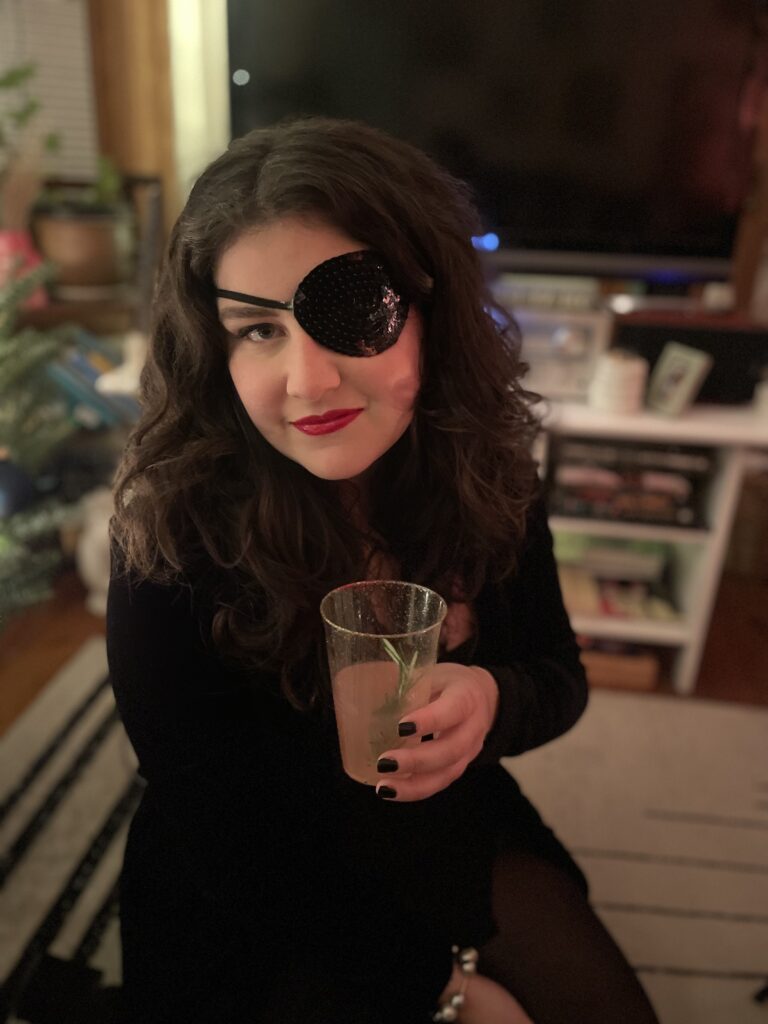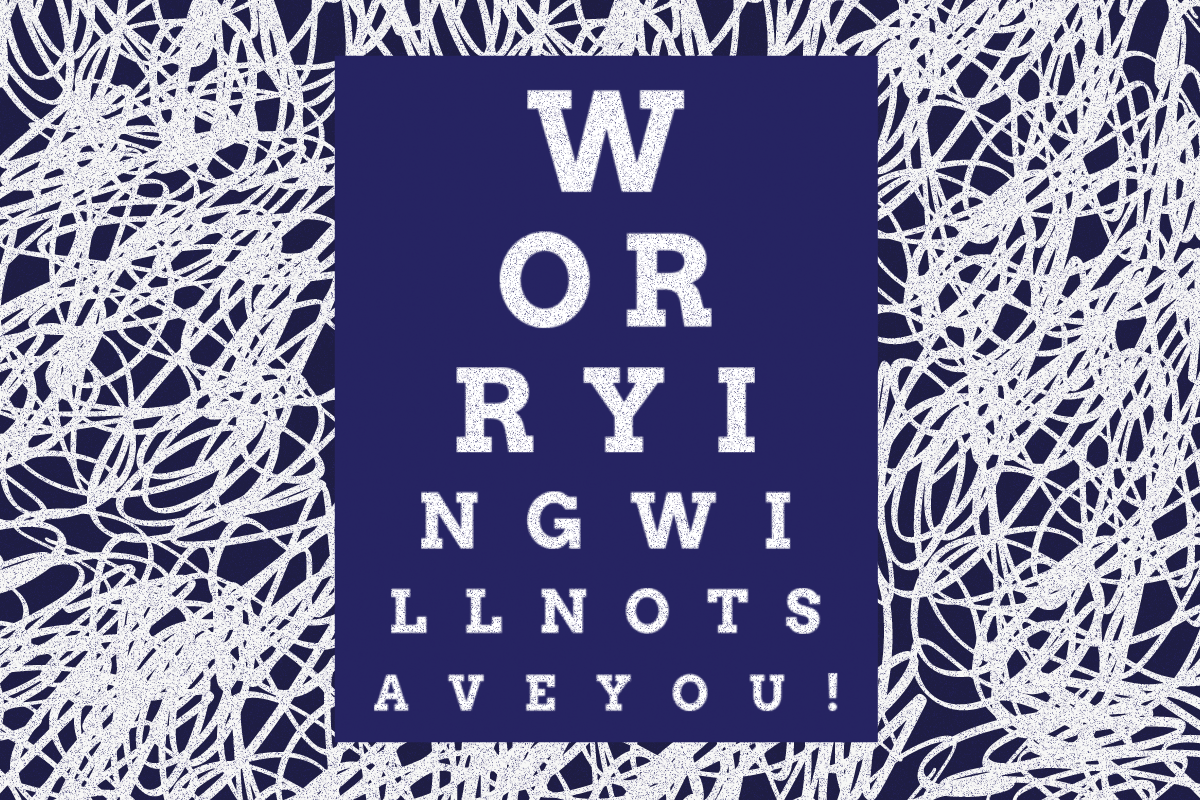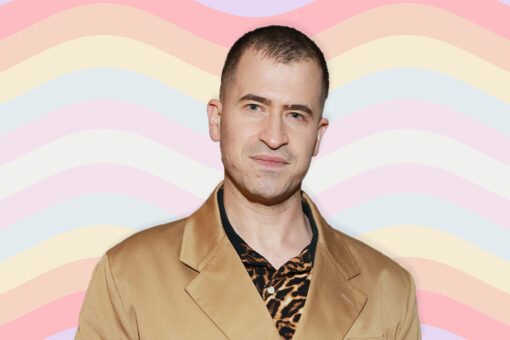November 1, 2022 was the day I found out. After lots of tests with some of the best doctors in the world, it was confirmed: I had uveal melanoma, an extremely rare and aggressive form of eye cancer with only 7,000 cases worldwide. I didn’t even know there was such a thing as eye cancer. How could I have cancer? I was 26 years old. I had never even smoked a cigarette. And for once, I had no symptoms to make me panic that something awful could be wrong.
It felt like a cruel joke: The 26-year-old girl who had spent her entire childhood and young adulthood afraid of illnesses, regularly visiting the doctor’s office only to hear the words, “Yep, this is normal. There’s nothing wrong with you,” gets cancer. My family didn’t even quite believe me when I told them my diagnosis. I was the girl who cried wolf. But this time, it was real.
For years I had prayed every night and every morning, sometimes singing, sometimes whispering, sometimes in my head, hoping that God would hear. I’d say the Shema at night and Modeh Ani in the morning, butchering the small amount of Hebrew I’d been taught. As a child with anxiety and OCD, the prayers became just another daily ritual to protect me from whatever I was currently afraid of — fears and paranoias made up in my head. But now I needed prayer, and despite it being about my eyes, it wasn’t just all in my head.
Later that month I underwent a surgery to implant a small button-like piece of metal in the back of my eye on the tumor. This tantalum ring (as it’s called) would act as a marker for my upcoming targeted radiation treatments. It would stay in my eye forever, with no real need to remove it. I had never been under, and of course had convinced myself that I must have dangerously small airways and was certainly allergic to anesthesia and would fall into a coma. Of course.
I dreamed that I was at a craft fair with Timothée Chalamet. And then I awoke, feeling so much lighter. In true Jewish kid style, I only wanted to know one thing from my parents: “Are you proud of me?”
In December I had five consecutive days of targeted radiation on my eye. Five sessions, each 20 minutes long. The room was big and smelled cold and sterile, with the proton laser beam in the center, hooked into a metal chair that spun in circles. I would wear a hard plastic, mesh-looking mask on my face to help keep me still during the radiation and eye retractors which looked more disgusting than they felt and had a very “Clockwork Orange” vibe to them. It was all very sci-fi. Two technicians, an oncologist and a Russian physicist joined me for my treatments. Each morning I would enter the room and say, “Hey guys, how’s everyone doing today?” as if we were all paired up to work on a high school science project.
I called this week my “radiation vacation.” We did some fun things in Boston, trying to make the most of that time. My treatments were successful, and my tumor would continue to shrink slowly for three or so years. I would start to lose sight in my eye. Maybe a little, maybe all of it. I started to find humor in my situation, realizing that I could now make cancer jokes! I ordered a batch of 50 colorful eyepatches, one in leopard print, and received the many necessary pirate jokes. I would often use the cancer card to get out of house chores, naturally. “I can’t wash dishes, I have CANCER!” I joked to my boyfriend, who would roll his eyes and say, “Nice try.” 
I do my best to stay positive, but in the back of my mind always is an impending fear that my cancer will spread. If it metastasizes, uveal melanoma tends to spread to the liver, then the lungs, then the bones. The regular MRIs I have act as sort of checkpoints for me. That date in September (my six-month scan) will determine what my next year — and the rest of my life — will look like.
The lonely part of this experience has been that my friends don’t understand. How could they? They’re also in their mid-to-late 20s, trying to figure out what their lives will look like, focusing on more normal concerns like career paths and relationships. It’s hard for them to understand what this very specific condition means for me. It’s hard for me to even understand! But a diagnosis like this will show you who your real friends are. And I am endlessly grateful for those people, including my loving and wise boyfriend Liam, who definitely did not sign up for this but has rolled with the punches with grace, compassion, patience and strength when I had none.

I have to believe that going through all of this at a young age has happened for a reason. I’m not someone who blindly believes God has a plan for everything, but in my case, I can’t help but recognize that He’s taught me a lesson. Spending your whole life worrying about what has happened, what will happen, what might happen, is a waste of time. I am proof that worrying does not work! I worried my whole life that I would get cancer. And guess what? It didn’t stop me from getting it.
Even though we’ve been through such a tragic history, fighting for our lives and surviving and even thriving, Jews still tend to be neurotic people and constant worriers. But I’m learning that there’s a power in letting go of that.
I will say though, if it wasn’t for me being a hypochondriac, I wouldn’t have gone for my regular eye exam, thinking I needed a slightly updated prescription for reading glasses. That appointment probably saved my life. I guess the lesson there is that prioritizing your health is important, even as a young person.
Now I pray again regularly, not to beg God for something, some protection, some guarantee. I pray to say thanks for the life I’ve been given, the many opportunities, creative endeavors, the love of my life and good friends and family who care about me, and the best healthcare in the world and medical advances being made every day.
My only plan is to not waste a moment. All I can do is be here now. But just to be safe, I still wear my evil eye bracelet every day.



